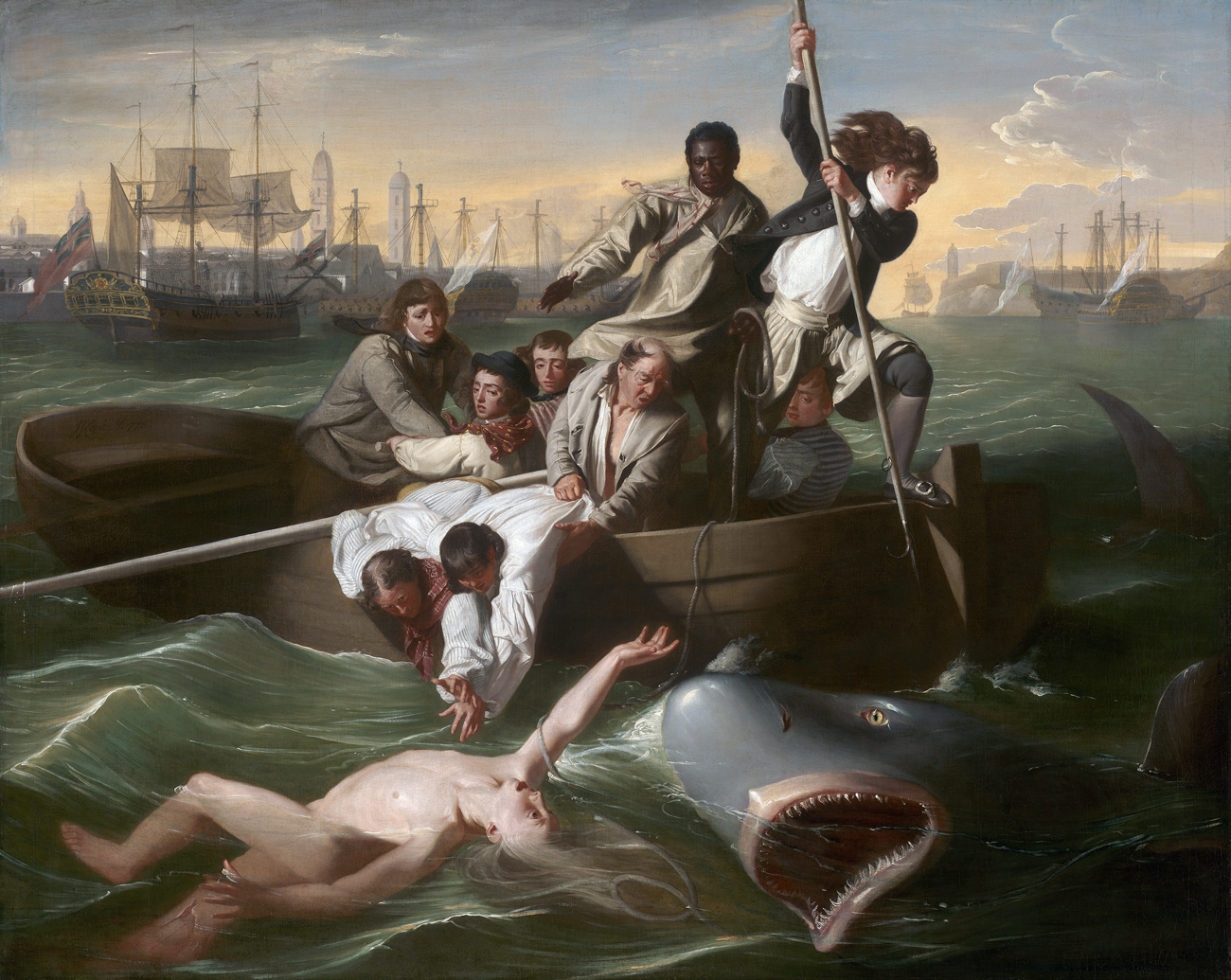I am ill every time it blows hard, and nothing but my enthusiastic love for the profession keeps me one hour at sea.
—Admiral Horatio Nelson, 1804Survival of the Fittest
Sailors versus the fog.
During our third day of sailing, the fine weather that we had had in abundance deserted us, and a sudden fog enveloped us. Daylight disappeared. The wind blew up from the sea against the prow of the ship, and the helmsman gave the orders to swing around the yardarm. The vessel’s hull lay at an angle on beam ends, and on the other side the deck was upended, rising steeply everywhere; as the wind assaulted it, the ship seemed to most of us in constant danger of capsizing altogether.
So we all relocated to the higher parts of the ship, aiming both to relieve the weight upon the part that was being submerged and to force the ship gradually to equilibrium by the exertion of additional pressure. This gained us no advantage, though: the ship’s deck, towering up, lifted us more successfully than we could lower it. For a while we wrestled to restore the ship to equilibrium as it rocked with the waves; then, suddenly, the wind switched to the opposite side. A mighty scream arose, followed by shouting and a speedy reversion to our former location. The same thing happened to us three times, four times, many times more—and we all shared in the ship’s wanderings. Before we could finish changing position in the first place, we had to start on the second lap.
And so we carried our baggage the width of the ship all day long, exhausting ourselves with endless racing in this quasimarathon, constantly anticipating death (which was, in all probability, not far off). At around midday we lost the sun completely—we could only see each other in a kind of moonlight. Flames of lightning flew, and the heavens bellowed with thunder; the air reverberated with crashes, and the waves, warring down below, reverberated in response; the sound between heaven and sea was of sundry winds hissing. The ship was constantly being now raised toward the peaks of the swelling sea, now dropped into the intervening troughs; the peaks of the waves were like mountains, the troughs like chasms.

Watson and the Shark, by John Singleton Copley, 1778. National Gallery of Art, Washington D.C.
Thanks to the rolling of the ship we were unable to keep to the same spot. Noises arose from all quarters, intermingling: waves roared, gusts blustered, women shrieked, men screeched, sailors barked. There was wailing and lamentation everywhere. Then the helmsman gave the order to throw our cargo overboard. Gold and silver were treated no differently from any old trinket: we hurled everything overboard just the same. Even many of the merchants hurriedly joined in the throwing, carrying with their own hands those items in which they had invested their hopes. The ship was now completely empty of cargo, but the storm was not to be appeased by such libations.
Finally the helmsman gave up the struggle: he released the rudder from his hands and handed the vessel over to the sea. Then he made ready the lifeboat, and ordering the sailors to embark, he initiated the evacuation. They immediately leaped out in quick succession. That marked the beginning of a dreadful event, a hand-to-hand battle. Those who had clambered aboard were already trying to cut the cable that attached the lifeboat to the vessel. Each of the passengers started making vigorous attempts to jump ship when they saw the helmsman hauling in the cable, but the sailors were making efforts from the lifeboat to prevent them coming on board. They had with them axes and daggers, and they made threats to strike anyone who boarded. Many on the ship also armed themselves as best they could, one retaliating by seizing a section from an old oar, another some of the ship’s thwarts. The law of the sea was force. It was a novel form of sea battle: those on the lifeboat were using their axes and daggers to strike those trying to leap on board, fearing that the boat might sink with the number of boarders; while the others were trying to jump at the same time as raining down blows with their cudgels and oars. Some touched the very tip of the boat and slipped down, while others who were boarding were now wrestling with those on the lifeboat. Any bond of friendship or respect disappeared; each looked to his own safety with no thought for altruism. Thus it is that great dangers dissolve even the laws of friendship.
Then a certain well-built young man on the ship grabbed the cable and hauled in the lifeboat. When this was now close to the ship, each prepared to leap on board if it should approach any nearer. Two or three succeeded, although not without injury, but many plunged headlong from the ship into the sea in their attempts to leap, for the sailors soon cut the cable with an axe and unshackled the lifeboat, to sail wherever the wind took them. Those on the ship, meanwhile, cursed them and prayed that the boat would sink. The vessel rolled and tumbled as it danced in the waves, before colliding invisibly with an underwater reef and breaking up altogether. When the ship slid back down the reef, the mast collapsed athwart, smashing one side of the ship and submerging the other. Those who were overwhelmed and drank the brine straightaway could have counted this the less extreme fate in the midst of such calamities, in that they were spared the time in which to fear death. A protracted death at sea kills even before the deathly blow is dealt, for when the eye confronts the enormity of the sea, it extends fear beyond any horizon, and this also increases the misery of death—for the dread of death is proportionate to the expanse of the sea.
Achilles Tatius
From Leucippe and Clitophon. This narrative is considered one of the five extant ancient Greek novels—Daphnis and Chloe by Longus is another—all of which were written between the first and fourth centuries and recount how pairs of young lovers overcome various hardships. Little is known about Achilles Tatius, but the tenth-century encyclopedia Suda claims that in addition to love stories, he “wrote on the sphere and on etymology, as well as a miscellaneous history of many great and illustrious men.”




